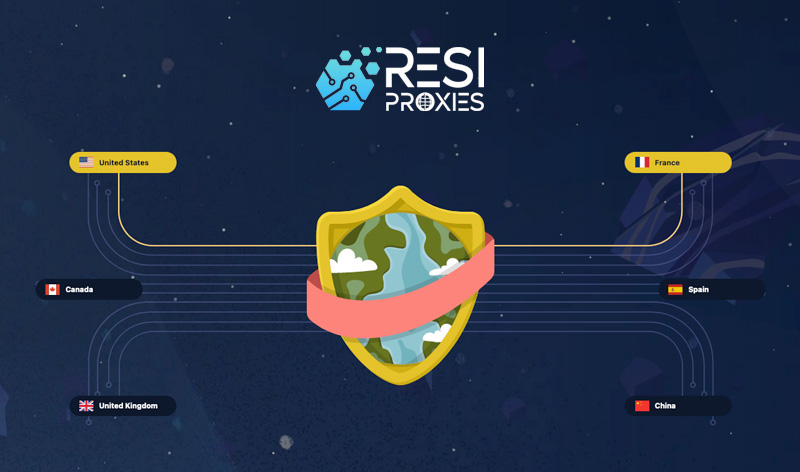
FAQ Residential Proxies
- General Information
- What are residential proxies?
- How To Get Discount Coupons A Complete Guide
- Datacenter Proxies: What They Are, How They Work?
- 5 Key Differences Between Rotating and Static Proxies
- HTTP vs SOCKS5 Proxies: Key Differences and Best Use Cases
- How to Use Proxies for Telegram: Secure Your Chats
- What to consider before buying residential proxies?
- Is it legal to use residential IP addresses?
- How Many Concurrent Sessions(Threads) Can I Use?
- What protocols do your proxies support?
- Can I try your residential proxies?
- What service restrictions do you have?
- Where can I use your proxies?
- Get Started
- How to create an account on your website?
- Where I have my profile details and password change?
- How can I contact you?
- I forgot my password, what can i do?
- Billing
- What methods of payment are available?
- How can I add money in Deposit?
- How to apply discount coupon code?
- How to place an order?
- What can I see in Billing section?
- How can I see my Traffic stats and Deposit balance?
- Do you offer refunds?

5 Key Differences Between Rotating and Static Proxies

In the world of proxies, choosing the right type can make or break your online operations. Among the most popular options are rotating residential proxies and static residential proxies, each offering distinct benefits tailored to specific use cases. Whether you're managing multiple accounts, scraping data, or bypassing geo-restrictions, understanding the differences between these two proxy types is critical.
In this guide, we’ll explore the key features, pros, and cons of rotating and static residential proxies to help you determine the best fit for your needs.
What Are Residential Proxies?
Residential proxies are IP addresses assigned by Internet Service Providers (ISPs) to real devices such as computers or mobile phones. These proxies provide a high level of authenticity and are often used to bypass security measures on websites, ensuring smooth and secure online operations.
What Are Rotating Residential Proxies?
Rotating residential proxies are IPs that change periodically, either after each connection request or at set intervals. Each time a request is made, the proxy server assigns a new residential IP from its pool, making it appear as if each request comes from a different user.
Key Features of Rotating Residential Proxies:
- Frequent IP Changes: Every request uses a different IP, enhancing anonymity.
- Large IP Pools: Access to thousands of residential IPs across various locations.
- Ideal for Automation: Perfect for high-volume tasks like web scraping and data harvesting.
- Freedom to generate proxies worldwide via the Proxy Manager
What Are Static Residential Proxies?
Static residential proxies provide a consistent residential IP that does not change over time. These proxies mimic a single, real user's behavior, making them ideal for tasks requiring stable connections.
Key Features of Static Residential Proxies:
- Fixed IP Address: The same IP is used throughout the session.
- Reliability: Offers a consistent connection, great for account management and sensitive tasks.
- Authenticity: Mimics a genuine, stable user connection.
Rotating vs. Static Residential Proxies: 5 Key Differences Side by Side
| Feature | Rotating Residential Proxies | Static Residential Proxies |
| IP Behavior | Changes after each request or session | Remains constant during use |
| Anonymity | High - the requests appear from different users | Moderate - mimics a single, real user |
| Risk of Bans | Low | Low |
| Cost | Slightly higher, traffic-based plans | Often a bit more affordable |
When Should You Choose Rotating Residential Proxies?
Rotating residential proxies are ideal for tasks that require a high level of anonymity or involve sending multiple requests to websites, such as:
- Web Scraping: Extract large amounts of data without getting flagged or blocked.
- SEO Tracking: Monitor keyword rankings or competitors without triggering CAPTCHAs.
- Ad Verification: Check ad placements across various locations quickly.
- Price Aggregation: Gather real-time pricing data from multiple sources.
When Should You Choose Static Residential Proxies?
Static residential proxies are best suited for activities requiring a stable, consistent IP, such as:
- Social Media Management: Maintain multiple accounts without arousing suspicion.
- E-commerce Operations: Handle transactions or manage seller accounts securely.
- Streaming Services: Access region-specific content without interruptions.
- Ad Campaigns: Ensure ads display properly from a fixed location.
Pros and Cons of Rotating and Static Residential Proxies
Pros:
- High anonymity.
- Suitable for large-scale tasks.
- Reduced risk of IP bans.
Cons:
- Less reliable for long-term sessions.
- Can be more expensive.
Pros:
- Consistent and stable connection.
- Mimics a single user effectively.
- Cost-effective for specific tasks.
Cons:
- Higher risk of IP bans.
- Limited scalability for high-volume tasks.
How to Choose the Right Residential Proxy
When deciding between rotating and static residential proxies, consider:
- Your Task Requirements: High-volume tasks favor rotating proxies, while static proxies work best for consistent activities.
- Budget: Rotating proxies often cost more due to their large IP pools.
- Risk Level: For tasks involving strict security measures, rotating proxies are a safer bet.
Why Choose Resi Proxies?
At ResiProxies, we offer premium residential proxies tailored to meet your unique needs. Whether you need the scalability of rotating proxies or the reliability of static proxies, our solutions are designed for maximum performance and security.
Explore our residential proxy plans today and unlock the full potential of your online activities.
Other FAQ topics

5 Key Differences Between Rotating and Static Proxies
General InformationDiscover the differences between rotating and static residential proxies. Learn their benefits, use cases, and how to choose the right one for your needs. Explore premium options at ResiProxies.

What protocols do your proxies support?
General InformationAll of our proxies support HTTP(S) and SOCKS5 protocols. For a lot of businesses that need to cover a lot of goals and use cases, HTTP proxies are a good option.

Can I try your residential proxies?
General InformationWe don't offer trials. If you want to test, purchase the minimum 1GB order and test exactly like your work requires.
Sign Up right now and discover Full Anonymity!
Get instant access to Residential Proxies all over the globe right in our user-friendly dashboard.
- support [at] resiproxies.net
- @resiproxies.net
- @resiproxies.net
- @resiproxies.net
© Copyright © 2025 ResiProxies.net.
All rights reserved.




